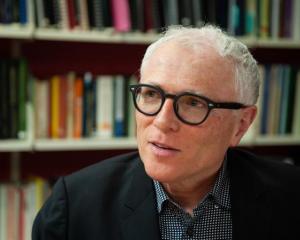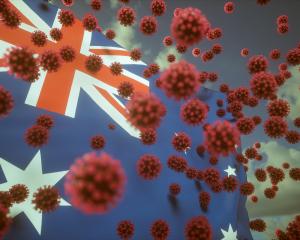
The health commission for Hubei said on Thursday that deaths in the province from the new coronavirus had risen by 37 to 162, while a further 1032 cases had been detected, bringing the total to just over 7000.
Although the majority of cases have been in Hubei, cases have been detected elsewhere in China and in at least 15 other countries.
The WHO's Emergency Committee is set to reconvene behind closed doors in Geneva later on Thursday to decide whether the rapid spread of the virus now constitutes a global emergency.
"In the last few days the progress of the virus, especially in some countries, especially human-to-human transmission, worries us," WHO Director-General Tedros Adhanom Ghebreyesus told a news conference on Wednesday, naming Germany, Vietnam and Japan.
"Although the numbers outside China are still relatively small, they hold the potential for a much larger outbreak."
The situation remained "grim and complex", said Chinese President Xi Jinping, who on Tuesday had vowed to defeat the "devil" virus.
United States President Donald Trump said he had spoken to Xi and his administration was working closely with China on containing the outbreak.
The US has flown about 200 Americans out of Wuhan, capital of Hubei where most of the cases are concentrated. They were being screened on arrival in California. France, Britain and Canada also have organised evacuations.
New Zealand and Australia will work together to evacuate their citizens from Wuhan. Australians will be quarantined at Christmas Island; Kiwis will be allowed home but quarantined in a place yet to be decided.
STREETS DESERTED
The effects of the virus are already weighing heavily on China's economy, the world's second-biggest, with companies cutting corporate travel and tourists cancelling trips.
Various airlines are cutting flights, from British Airways and Lufthansa to Air Canada and American Airlines.
In many Chinese cities, streets were largely deserted. Tourist attractions were closed, while Starbucks coffee shops required people to have their temperatures taken and to wear masks.
"It's my first time here in Asia, I feel very unlucky," said Brazilian tourist Amanda Lee (23), cutting short a trip. "I couldn't even see the places I wanted, like the Great Wall."
Almost all the deaths so far have been in the central province of Hubei, home to about 60 million people and now under virtual lockdown. The virus emerged last month in a live wild animal market in the provincial capital Wuhan.
"I was extremely worried that I was stuck there," said Takeo Aoyama, who arrived in Tokyo on a chartered plane carrying 206 Japanese out of Wuhan as some governments began evacuating their citizens.
A government economist said the crisis could cut China's first quarter growth by one point to 5% or lower as the crisis hits sectors from mining to luxury goods.
'LESS DEADLY THAN SARS'
In a potentially major step towards finding a vaccine, scientists in Australia said they had developed a lab-grown version of the virus, the first recreated outside China.
The researchers at the Peter Doherty Institute for Infection and Immunity said they would share the sample, grown from an infected patient, with the WHO and global laboratories in the hope of hastening immunisation and detection.
The number of cases of the new virus in China now exceeds the 5,327 that were infected with the Severe Acute Respiratory Syndrome (SARS), which also originated in China and killed about 800 people globally in 2002 and 2003.
While some experts believe the new strain, known as "2019-nCoV", is not as deadly as SARS, alarm has grown over its rapid spread and many unknown attributes.
"There have been more cases in China, but so far with a lower death rate than the SARS outbreak," said Michael Head, a health researcher at Britain's University of Southampton.
Like other respiratory infections, the new virus is spread by droplets from coughs and sneezes, with an incubation time between one and 14 days.










